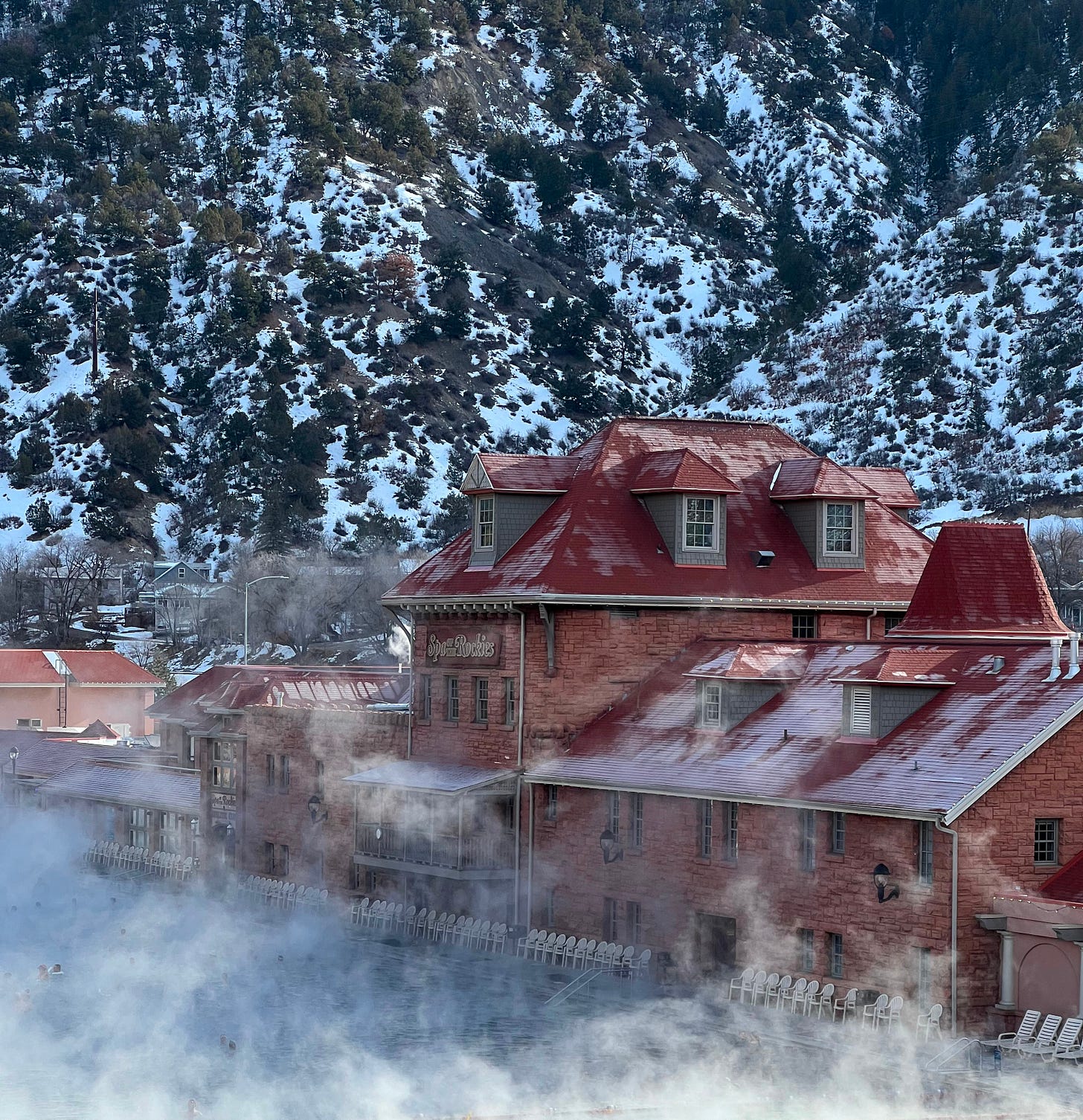January always feels sort of out of time to me, this year even more than most. I’m certain I’m not alone in this, and I wonder if there is some primal pre-industrial instinct deep in the recesses of our species at play.
With the start of the new year, our contemporary habit is to reflect on goals for the twelve months ahead, to make resolutions (and to preemptively deride resolutions as impossible to keep). But marking the start of a year as January 1st is, of course, relative. The ancient Romans used a decimal calendar that began the year in March with the arrival of spring and ended in December, leaving the dead of winter as time unaccounted for, as it was not applicable to the farming season.
I find that time is a more malleable thing than it at first blush seems. For the past two years, I’ve developed a practice of breaking my year down into smaller segments and setting goals for those portions rather than for a year as a whole.
Those of you who came to the Scremes Report holiday party at Betty last month know I’m writing a novel. I have boiled down my use of time to serve my goals for that project, and for this newsletter. What I’ve found is that the most surefire way to prevent yourself from rationalizing time spent on all of the things that surround the actual work, from tricking yourself into thinking you’ve done something that you haven’t, is to look only at the level of the day.
I started the year reading V. S. Naipaul’s The Enigma of Arrival, a birthday gift last March from a writer friend. Published in 1987, the novel (of which I’ve so far read the first of five parts), seems to me to be the sort of book that can only be produced by patient daily observation. The narrator, whom we may now call an autofictional Naipaul, walks the valley near the Salisbury Plain where he’s rented a cottage, nearly every day for months that stretch into years, and what comes from it is a beautiful unfolding picture of the place, and the people inhabiting it: those who come and go; those who stay.
Observing the changing processes for baling hay on the farm, Naipaul writes:
Such refinement! But perhaps the scale—for farming—was wrong. Perhaps time should never be as valuable as that, day after day. Perhaps when routines became as tight as that, they could too easily go awry. One broken link—and human ventures were always liable to error—could throw the entire operation out of true.1
This way of thinking recalls another book that I recently recommended to a friend: In Praise of Slowness by Carl Honoré. The book was formative to my conception of time and productivity, and how I protect my time. In it, Honoré explores slowness in every facet of life—eating, sex, travel, work—and elucidates the same truth revealed 26 centuries ago by Aesop: slow and steady does indeed win the race. By slowing down, by becoming intentional, we actually gain an expansiveness of time.
So this winter, I recommend taking your days one by one. Take long walks. Drink a cup of tea in the afternoon with no other media. Do one thing at a time. Look. Listen. Feel for the changes.
Support for LA
I think LA is an enigmatic place to most people who haven’t lived there. I used to half-jokingly describe it to people in New York by saying that while New York may be the greatest city in America, LA is the greatest American City. Every city in the world manufactures its own mythology, but LA does it without pretense. So American. Its infrastructure is American. Its historicity is American. But more than any of that, it’s a very special place that is home to a great many artists.
Amid the many tragedies of the fires last week was the loss of Gary Indiana’s library. Colm Tóibín reports in the London Review of Books:
On Tuesday when Gary Indiana’s library came to Los Angeles, it rested for a while in the appointed house in Altadena. But it was the wrong day. If they – the signed editions, the rare art books, the weird books, the books Gary treasured – had come a day later, there would have been no address to deliver them to, so they would have been saved. But on that Tuesday, unfortunately, there still was an address.
While many community organizations and local businesses that were accepting in-kind donations to support those affected by the fires have reached capacity, the Skylight Booksellers Union is gathering donations for the Altadena Seed Library.

Big <3 to the City of Angels. Feel free to share other rehabilitation efforts in the chat.
TONIGHT (Jan 14): PATIO feat. Sebastian Moller, Sophia June, Alex Wolfe, Sophie Kemp, Saoirse Bertram, and Nicola Maye Goldberg. Hosted by Bronwen Lam and David Dufour | 7 pm at T.J. Byrnes (77 Fulton St). Free.
Wednesday, Jan 15: Tertulia First Dibs Editors Salon, feat. four new books and their editors, Paris Ebrahimi, Michael Reynolds, Naomi Gibbs, and Allison Lorentzen | 7 pm. RSVP. $10.
Thursday, Jan 16: I Blame Television: A Pop Culture Reading Series feat. Manuel Betancourt, Emma Spector, Anna Dorn, Ruth Madievsky, and Hannah V Sawyerr | 6 pm at Chevalier’s Books (133 N Larchmont) LOS ANGELES. Free.
Saturday, Jan 18: LA Book Lovers Book Donation Drive | 10:30 am – noon at Barnsdall Art Park LOS ANGELES.
Sunday, Jan 19: Jordan Castro and Cluny Journal present: SILENCE, an evening of silence. No speaking, no phones. | 7 pm at Earth (49 Orchard). Free.
Tuesday, Jan 21: Launch of VANTAGE POINT by Sara Sligar, in conversation with Janelle Brown | 7 pm at Skylight Books LOS ANGELES. Free.
Thursday, Jan 23: LIMOUSINE feat. Jordan Coley, Iva Dixit, Jeremy Gordon, Ama Kwarteng, and Zefyr Lisowski | 7 pm at Berry Park (4 Berry St) BK. $5 tickets available here.
Monday, Jan 27: Notch Magazine Workshop. All artists welcome. | 7 pm at Pubkey (85 Washington Pl.). Free.
Monday, Jan 27: Herbal Supplements feat. Catherine Chen, Mia Martelli, Malavika Kanna, Alyssa Velazquez, Drew Goldstein, and Harlem Farr | 8 pm at Cherry on Top (379 Suydam St.) BK.
V.S. Naipaul, The Enigma of Arrival (Random House Vintage, 1988), 57. (My emphasis).








